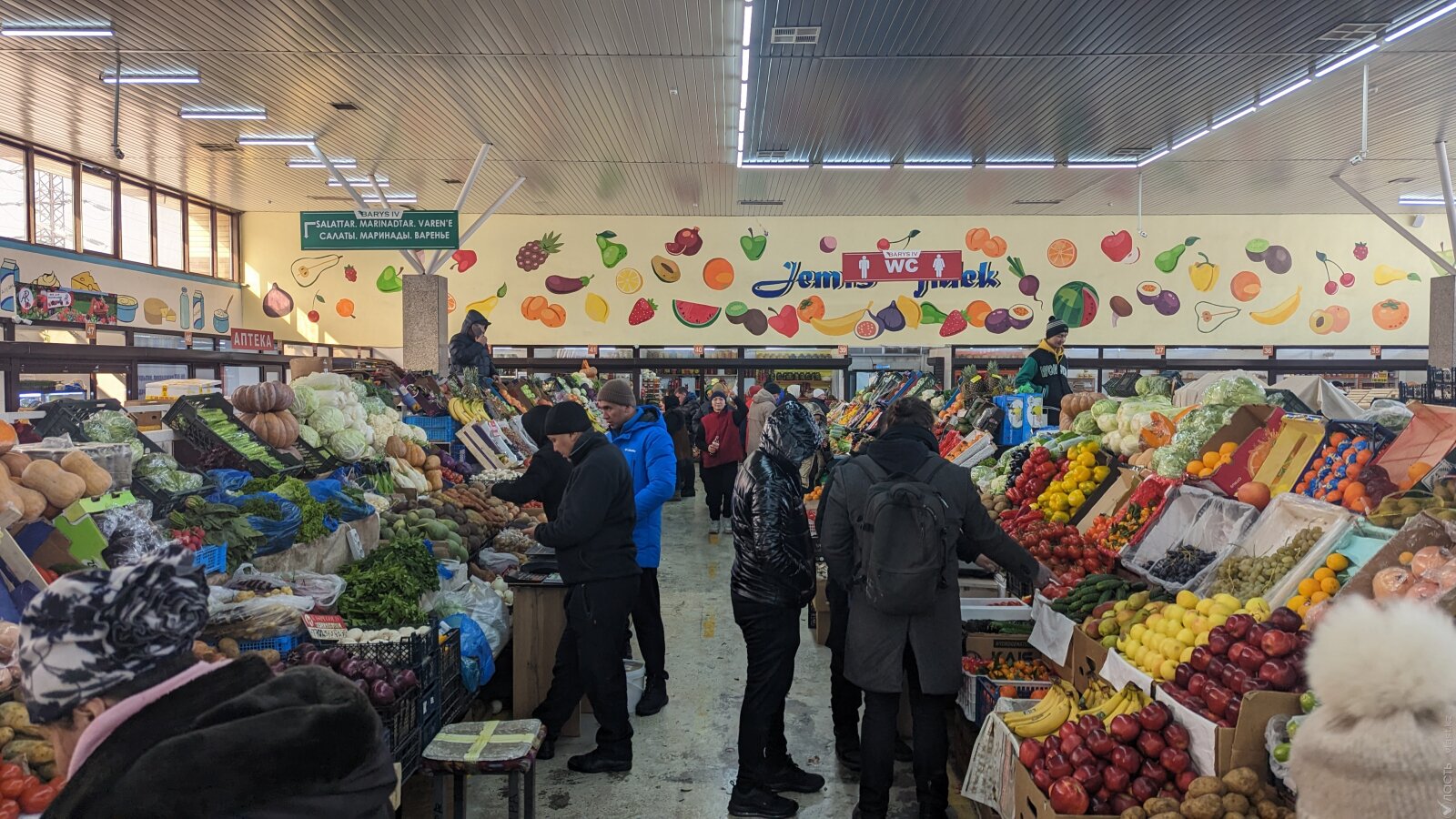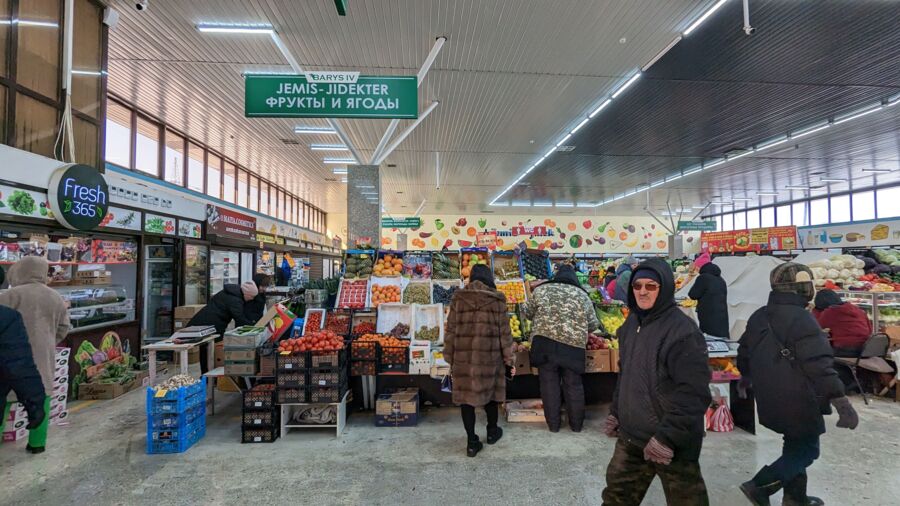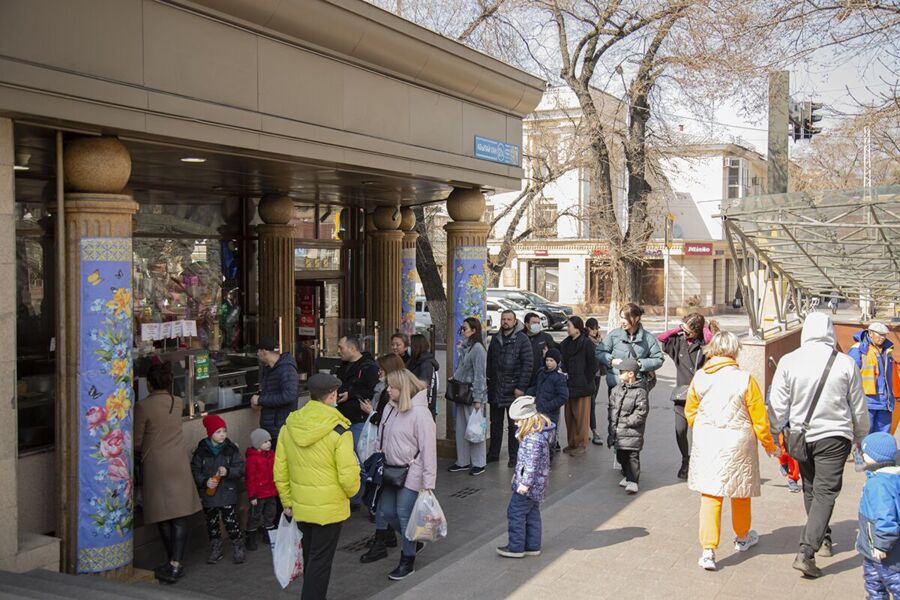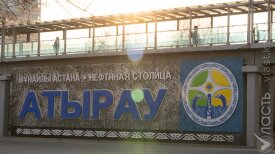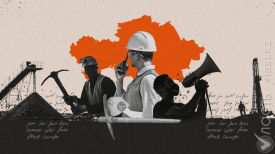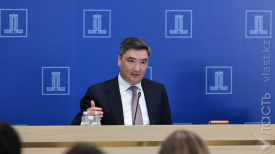- ВКонтакте
- РћРТвЂВВВВВВВВнокласснРСвЂВВВВВВВВРєРСвЂВВВВВВВВ
Kazakhstan’s government regularly reported stable economic growth this year, yet people’s purchasing power has decreased significantly, according to official data.
A Central Bank report published on September 4, highlighted that the monthly income of nine out of ten people in Kazakhstan stands below 151,000 tenge (around $320) in the first quarter of the year. Inflation, which has continued to gallop in double figures for almost two years, has negatively hit the purchasing power of the vast majority of people in Kazakhstan.
It is important to note that income is poorly distributed in Kazakhstan. The Central Bank, however, continues to measure income inequality with the Gini coefficient, noting the 28.5% level as an improvement. In other words, the regulator’s calculations only record a slight disparity in income distribution.
Researcher Galym Zhussipbek, on the contrary, argues that the disparity is in fact of colossal proportions. In an interview, he told Vlast the most worrisome statistics to focus on are poverty numbers.
“The Gini coefficient fails to detect the level of poverty. In general, such statistics are insufficient to reflect the real state of affairs,” Zhussipbek said.
In early 2023, the Statistics Committee published data showing that 96.6% of the population has a monthly income below 200,000 tenge ($430). Statistics also show that almost one million people in Kazakhstan live below the poverty line, i.e. with an income below 45,000 tenge ($95).
Counting the Poor
In their 2021 book, however, Balihar Sanghera and Elmira Satybaldieva warned of misleading official statistics on poverty. “Governments can manipulate concepts and measurements to hide the depth of economic malaise. Despite government claims to the contrary, according to international methodology, more than half of the population in Kazakhstan lived in poverty.”
According to the Statistics Committee, the poverty level in Kazakhstan has decreased between the fourth quarter of 2022 and the first quarter of 2023 to 4.8%.
Madina Kabzhalyalova, an analyst at Halyk Finance, said this trend is difficult to believe.
“Such an indicator would be low even in developed countries, and this raises questions about its objectivity, especially against the backdrop of falling real incomes of the population and high costs of food products. The real poverty rate could realistically be three times higher,” she wrote in a report in August.
Zhussipbek emphasized that the current average income level of 150-200,000 tenge is hardly sufficient to lead a decent lifestyle.
“Everyone knows how high the prices for food and rent are now, much higher than such an income level. Plus, we should consider that almost everyone has opened at least one loan.”
Food turns out to be one of the most important lines in people’s monthly budget. Kazakhstan residents in fact spend around 50% of their expenses on food. This is a much higher proportion than in the US (6.7%), European countries (9-19%), or Russia (29%).
No Way Out
Vlast spoke with several residents of Almaty and Astana about their income and expenses.
Seven respondents said that on average their income is 200-300,000 tenge. Most of them are employed full time and do not have the opportunity to earn extra money.
They said that every month they spend from 30 to 50% of their income on food, depending on the size of the family. Another 30-50% is earmarked for loans or rent, and the rest goes to basic expenses like transport, clothing, and medicine.
“My salary at my previous job was 200,000 tenge ($420). As a widow, I also receive another 100,000 as a benefit. My 10-year-old child and I spend 80,000 on food and 100,000 on renting an apartment along with utility costs. I spend 60,000 tenge to pay back loans and another 60,000 is left for other expenses,” said Dinara, a 35-year-old resident of Astana.
“I earn 300,000 tenge ($630) a month and that is the only income. I have a wife and child and we spend about 30-40% on groceries. We only eat standard food like pasta and chicken. We transfer around 230,000 tenge to pay back a loan. My child’s kindergarten costs 50,000 per month,” said Arkhat, a 30-year-old driver from Astana.
“[My husband and I] are both pensioners. We each receive 165,000 tenge ($346). In the city this is not enough. Almost 80% of the pension goes to food. You also need to pay for other things, such as utilities. Children help us. Without them, our pensions would not be enough,” said Zhanyl, a pensioner who recently moved to Almaty from a nearby village.
Vlast also asked citizens how they cope with inflation.
“There is no way out. You can't work extra jobs right now. So my family and I simply stopped spending money on vacation,” said Aidos, a 55-year-old industrial safety specialist from Almaty.
“I left my previous job and took a higher-paying job as a real estate broker. I’m trying to increase my income and reduce my expenses. I no longer buy stuff for the house. I buy in fixed price stores and take advantage of evening discounts in stores. We save money during disount campaigns. But it’s still hard for us,” says Astana resident Dinara.
“I mainly work in construction. My wife and I are always looking for additional work, otherwise we don’t have enough money: We need to pay off the mortgage. But it’s not always possible to earn extra money. In the winter, there is no construction. And in general, additional income does not always help. The tenge is depreciating,” says Zharkyn, a 52-year-old resident of Almaty.
A Long-Standing Systemic Problem
Zhussipbek said there is no use for statistical data on poverty without its analysis as a political phenomenon: “Poverty is the product of a combination of many factors: the state of the environment, geographical location, family and parental history, inherited property in the family, among others.”
Kabzhalyalova believes that the problem of poverty and low income would require a multifaceted solution, such as the development of targeted government policies and programs. In an interview with Vlast, Kabzhalyalova said that the government for now has only tried the strategy of increasing benefits for vulnerable groups.
“Conditional cash transfers, could be temporarily used to support vulnerable groups, but the key to raising incomes is ensuring macroeconomic stability with low inflation, sound
fiscal indicators, and increased productivity and competitiveness.” she told Vlast.
Zhussipbek considers low incomes a violation of human rights.
“The state must protect the rights of citizens by regulating labor relations so that we receive salaries that can satisfy all our basic needs. And now nothing prevents us from raising wages two or three times.”
Typically, economists say that increasing incomes would trigger inflation. Zhussipbek, however, disagrees. New approaches to economic theory showed that monopolistic behaviors are in fact the main factor in rising prices. Therefore, the state must regulate them by properly setting up the tax system, the scholar argued.
And money, according to new economic theories, is an inexhaustible resource. The state, Zhusipbek noted, can provide it in sufficient quantities to both satisfy the needs of the population and avoid too high inflation.
Поддержите журналистику, которой доверяют.
